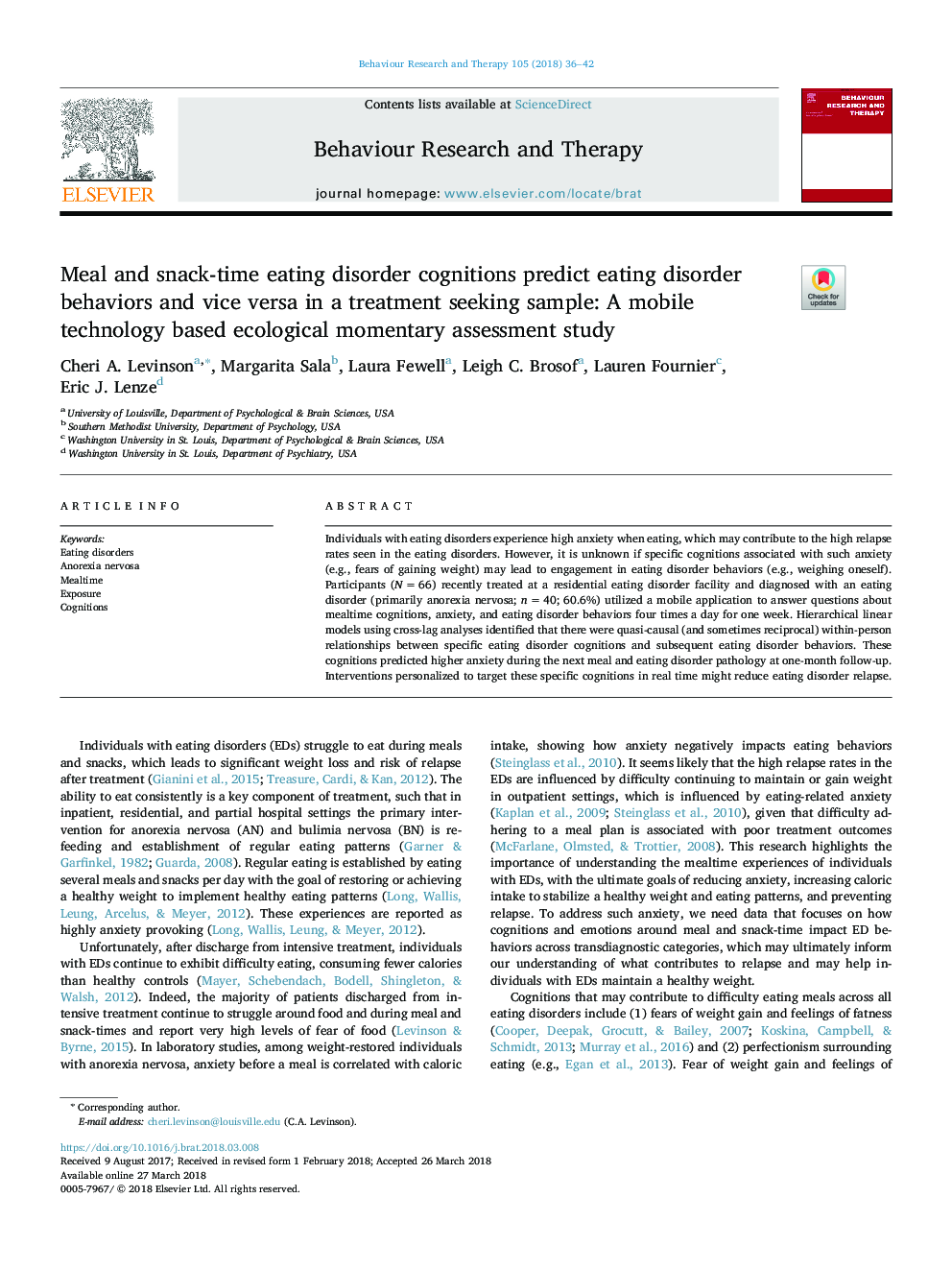| کد مقاله | کد نشریه | سال انتشار | مقاله انگلیسی | نسخه تمام متن |
|---|---|---|---|---|
| 7261811 | 1472744 | 2018 | 7 صفحه PDF | دانلود رایگان |
عنوان انگلیسی مقاله ISI
Meal and snack-time eating disorder cognitions predict eating disorder behaviors and vice versa in a treatment seeking sample: A mobile technology based ecological momentary assessment study
ترجمه فارسی عنوان
شناخت اختلالات خوردن غذا و نوشیدنی پیش بینی رفتارهای اختلال خوردن و بالعکس در درمان نمونه ای را جستجو کنید: یک مطالعه مبتنی بر تکنولوژی مبتنی بر فناوری تلفن همراه مبتنی بر ارزیابی لحظه ای
دانلود مقاله + سفارش ترجمه
دانلود مقاله ISI انگلیسی
رایگان برای ایرانیان
کلمات کلیدی
اختلالات اشتها، بی اشتهایی عصبی، غذا خوردن گرفتن در معرض، تعاریف،
موضوعات مرتبط
علوم پزشکی و سلامت
پزشکی و دندانپزشکی
روانپزشکی و بهداشت روانی
چکیده انگلیسی
Individuals with eating disorders experience high anxiety when eating, which may contribute to the high relapse rates seen in the eating disorders. However, it is unknown if specific cognitions associated with such anxiety (e.g., fears of gaining weight) may lead to engagement in eating disorder behaviors (e.g., weighing oneself). Participants (Nâ¯=â¯66) recently treated at a residential eating disorder facility and diagnosed with an eating disorder (primarily anorexia nervosa; nâ¯=â¯40; 60.6%) utilized a mobile application to answer questions about mealtime cognitions, anxiety, and eating disorder behaviors four times a day for one week. Hierarchical linear models using cross-lag analyses identified that there were quasi-causal (and sometimes reciprocal) within-person relationships between specific eating disorder cognitions and subsequent eating disorder behaviors. These cognitions predicted higher anxiety during the next meal and eating disorder pathology at one-month follow-up. Interventions personalized to target these specific cognitions in real time might reduce eating disorder relapse.
ناشر
Database: Elsevier - ScienceDirect (ساینس دایرکت)
Journal: Behaviour Research and Therapy - Volume 105, June 2018, Pages 36-42
Journal: Behaviour Research and Therapy - Volume 105, June 2018, Pages 36-42
نویسندگان
Cheri A. Levinson, Margarita Sala, Laura Fewell, Leigh C. Brosof, Lauren Fournier, Eric J. Lenze,
